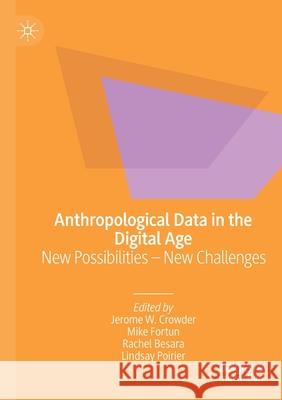Anthropological Data in the Digital Age: New Possibilities - New Challenges » książka
topmenu
Anthropological Data in the Digital Age: New Possibilities - New Challenges
ISBN-13: 9783030249274 / Angielski / Miękka / 2020 / 270 str.
Anthropological Data in the Digital Age: New Possibilities - New Challenges
ISBN-13: 9783030249274 / Angielski / Miękka / 2020 / 270 str.
cena 402,53
(netto: 383,36 VAT: 5%)
Najniższa cena z 30 dni: 385,52
(netto: 383,36 VAT: 5%)
Najniższa cena z 30 dni: 385,52
Termin realizacji zamówienia:
ok. 22 dni roboczych.
ok. 22 dni roboczych.
Darmowa dostawa!
Kategorie:
Kategorie BISAC:
Wydawca:
Palgrave MacMillan
Język:
Angielski
ISBN-13:
9783030249274
Rok wydania:
2020
Wydanie:
2020
Ilość stron:
270
Waga:
0.35 kg
Wymiary:
21.01 x 14.81 x 1.57
Oprawa:
Miękka
Wolumenów:
01
Dodatkowe informacje:
Wydanie ilustrowane











